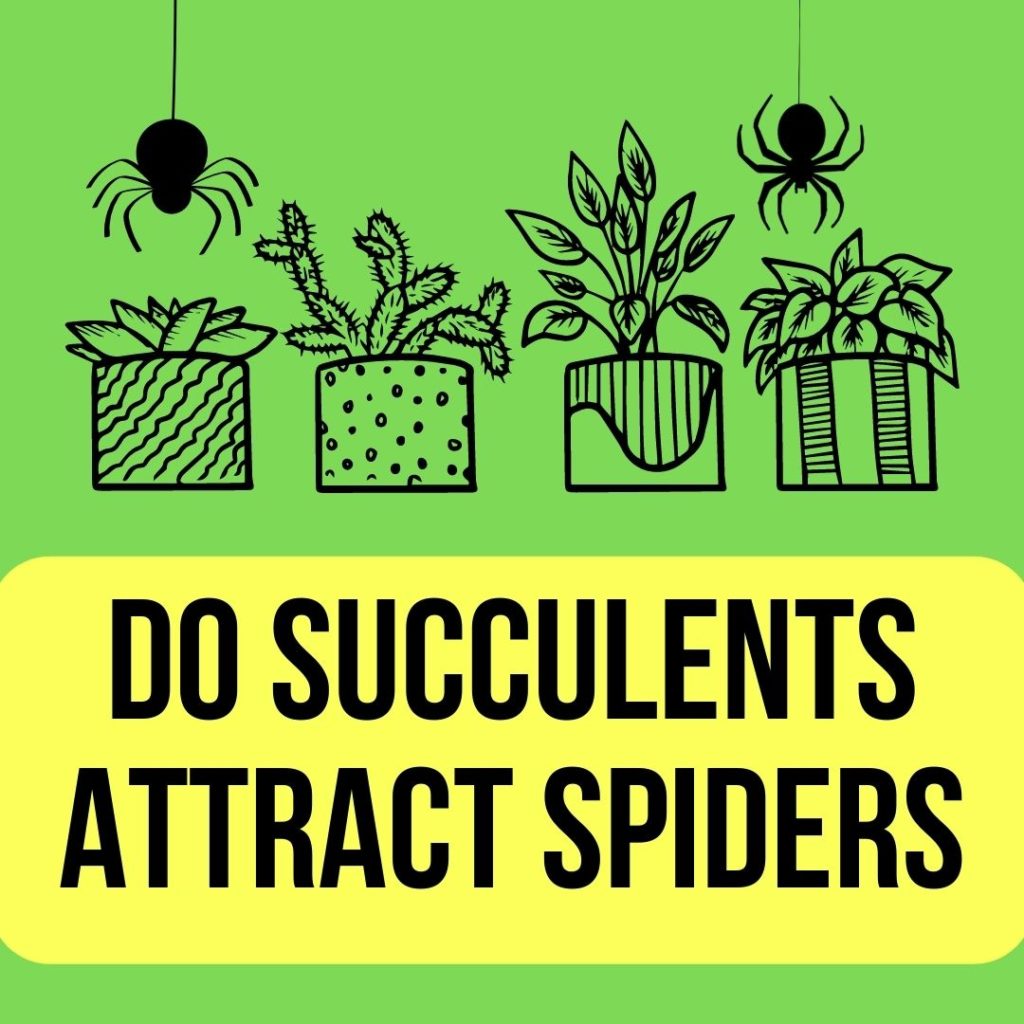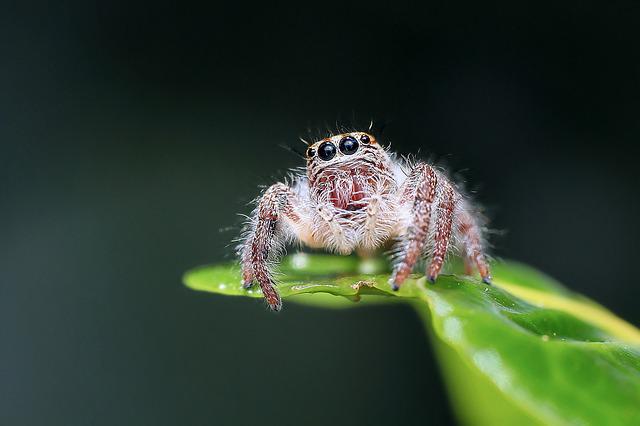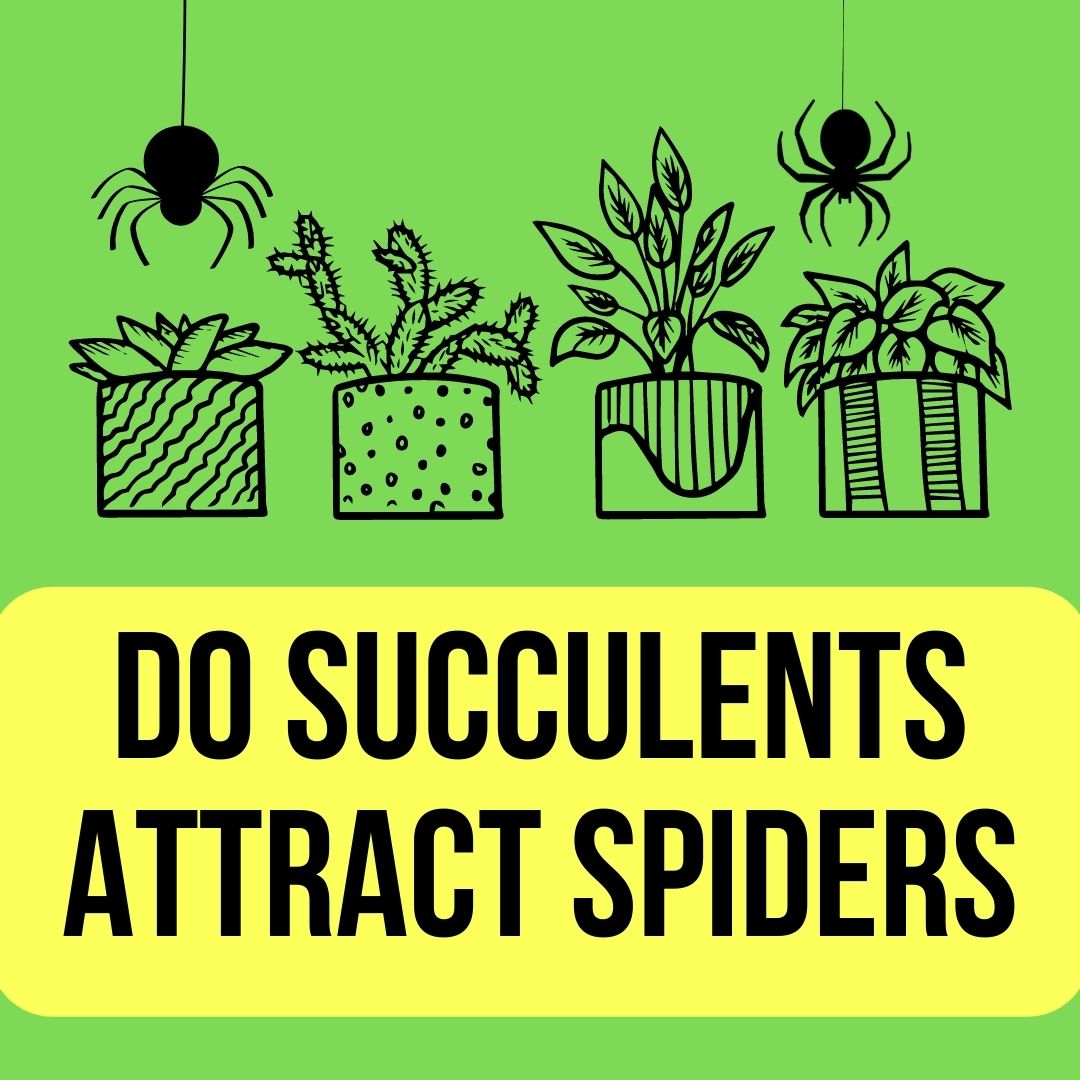Succulent is a type of plant with juicy and hardy leaves. So naturally different insects like ants, spiders, bees, etc. are attracted to them.
Spiders are at the top of the food chain. That’s why many animals like birds, frogs, and other animals devour spiders as meals. In nature, we often see spiders making nests in plants.
You might see some also in your houseplants like succulents. Do succulents attract spiders? Or else why would spiders come near succulents?
succulents are preferable to spiders. But they don’t attract the spiders by themselves. It’s for the pros and facilities succulents provide for the spiders. Succulents make a good residence for spiders. That’s why spiders step towards succulents.
Why do spiders go near succulents?
Every species wants to feel protected. They search for nice and well-decorated homes as do spiders. From October to September, spiders search for safe residences. It’s their maturing season.

This time they often come inside homes and make houses in their safe plants. You might even see them in your garden’s succulents. They don’t have any attraction towards succulents specifically. But succulents do provide them with many facilities.
- Accommodation: Spiders want to hide as do Spider mites. Which is a small kind of spider, a well-known succulent pest. Succulents have thick leaves and stems. They offer the perfect frame for spider protection.
- Protection: Spiders are at the top of the food chain. Many predators hunt for them. Like some birds love them as their meals. That’s why spiders hide under succulents and can see what’s going on outside.
- Meal: Succulents have fleshy leaves and stems. They store water in them. Succulents don’t need that much water. But sometimes gardeners overwater them. Hence they become overhydrated. Because of this a small amount of water accumulates in the base of succulents. Spiders drink it to fill their hunger.
- Waving nets: Succulents base is a perfect place for spider nests. Spiders wave their nets around the succulent bases and leaves. This helps them to catch insects. Spiders can easily make nests and can get everything from them.
As you can see succulents provide many facilities for a spider’s needs. That’s why spiders are attracted to them.
Are spiders harmful to succulents?
Now that you know spiders go near succulents. The next question that might pop out in your brain is ‘Are spiders harmful to succulents? ‘
Yes, Spiders and spider mites both are harmful to succulents. Spiders drink lots of water. Spider mites thrive in hot, dry conditions, look like cayenne pepper, and spin webs. If the number of spiders increases, they will cause dehydration for your succulents.
- Spiders love to surf the web. Too much web will be a problem for air circulation for succulents. It will become unhealthier. Another issue, their webs will hold the water. Resulting from the water not reaching the soil and the roots. Thus the succulents will die.
- If you see yellow and rust-colored spots in your succulents, it’s the sign of a spider mites attack. The problem is that you won’t realize their presence until they have damaged your plant. They are quite small in size. Spider mites eat the outer layer of succulents.
Normally explaining succulents aren’t spiders’ targets. But succulents will be used for spiders’ selfish purposes. They can willingly harm your plants if needed. You should prevent them from coming near your plants.
How to step forward against spiders?
Now, you know what spiders can do to succulents. You should prevent them.
- Spider mites are little pests. Though you can control them by taking the proper steps. Good air circulation generally keeps these pests at bay. Keep the soil aerated. Sift the soil weekly. That way spiders and other insects don’t feel comfortable. Sometimes when the soil becomes too old it makes a nice home for insects. Be sure about repotting succulents.
- An earth-friendly control is spraying isopropyl (rubbing) alcohol diluted half-and-half with distilled water. You can also use organic pesticides.
- If you ever see a glimpse of the net in your succulents clean them immediately. Don’t let them make nests in your plant.
- Clean your plant properly and notice the soil and base. If you see any spiders near the plant remove them gently.

What plant attracts spiders?
There are many plants that spiders are attracted to. Spiders are largely distrusted around the world. But not everyone likes them. Some People look at them as gross and scary.
Spiders are attracted to sunflowers. For sunflowers’ colorfulness and size, it attracts spiders. As well as other tall plants, hollyhocks, delphiniums, and foxgloves attract spiders.
What plants keep spiders away?
There are many plants that spiders detest. Here are some:
| Peppermint | Peppermint oil is a flashy way to keep spiders away. We love the scents of it. But spiders can stand it. They hate the smell of it. Add some oil to your cleaning water or solution and spray them around the succulent pots. |
| Basil | According to various researches in world-renowned university Basil can repent spiders, mosquitoes that carry malaria. |
| Lavender | Lavender scents calm our minds and nerves. But it does the exact opposite for spiders and other insects. You can use it the same way as peppermint oil. |
| Citronella | Their long leaves are well used as mosquito repellent. |
| Lemon thyme | It can grow anywhere, in any environment, and under harsh conditions. Its smell repents other mosquitoes as well as spiders. |
| Chrysanthemum | Chrysanthemum flowers work splendidly well to repel insects. So as their leaves. |
Conclusion
Succulents attract spider. And we have criticized spiders throughout the whole article. But they are not that harmful to plants. Spiders also have some usefulness in gardens. They eat other small insects and pests.
The garden spiders have black and yellow color on their body. As they eat other pests they reduce the harmful plant pathogens. The fewer pests mean the fewer chances of spreading diseases.
Hope we have managed to value your time over this article and thank you for stopping by.
